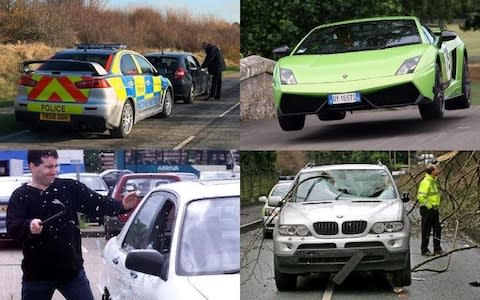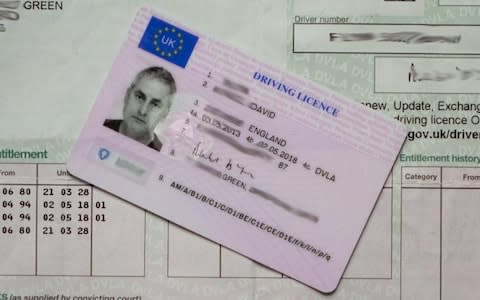How long do points stay on your driving licence?

Endorsements on your licence have to stay there for a fixed amount of time, which varies depending on the offence. Whether it's for speeding or for some other offence, getting points isn't as good as it sounds. And the minute they’re there, chances are you’ll be looking forward to the time you can get rid of them again.
But exactly how long is that? How many years is it that a set of points has to stay on your licence? Well, the actual figure varies depending on your conviction.
But first, it’s worth understanding the rules about points’ validity. There are three set periods for which penalty points can stay “valid”: three years from the date of the offence; three years from the date of conviction; or 10 years from the date of conviction.

“Valid” means that these penalty points are active on your licence, and can be added to if you’re found guilty of another endorsable offence.
"'Valid' means that these penalty points are active on your licence, and can be added to if you’re found guilty of another endorsable offence"
Once the points are no longer valid, however, they stay on your driving record for a further year. During this time, they don’t count toward your total points tally, but they can be taken into account by a judge if you commit another offence.
So a set of points that are valid for three years will actually stay on your licence for four; while one valid for ten years will stay there for 11.
So, how long are my points valid for?
Three years from conviction
If you’ve been convicted with one of the following codes: DD40, DD60 or DD80 (reckless or dangerous driving), then your points are valid for three years from the date of conviction, and must remain on your licence for four years from this date.
These points codes also come with a mandatory disqualification from driving.
Ten years from conviction
If you’ve been convicted with one of the following codes: DR10, DR20, DR30, DR31, DR61, DR80 (drink or drug driving); CD40, CD50, CD60 or CD70 (careless driving involving drink or drugs, or failing to provide a specimen), then your points are valid for 10 years from the date you were convicted, and must remain on your licence for 11 years from this date.
Three years from offence
If you’ve been convicted with any points code other than those mentioned above, then your points are valid for three years from the date of the offence, and must remain on your licence for four years from this date.
What about insurance? Do I still have to declare points when they’re no longer valid?
This is a murky area. Legally, an insurer is not allowed to offer you less favourable terms once a conviction becomes spent under the Rehabilitation of Offenders Act – and that means once the points are no longer on your driving record, or after five years, whichever comes sooner.
“'If a firm cancels the policy of a customer who has a spent conviction simply because the customer did not disclose the endorsement, then we will uphold the customer's complaint'" Financial Ombudsman
This applies even if the points are still on your licence, in the case of an 11-year endorsement. So if you are convicted of an offence which carries such an endorsement, it is considered spent once the first five years are up.
Insurance companies are still allowed to ask the question, though – but they are then not allowed to use your answer as a reason to increase your premium if the conviction is indeed spent.
However, if you can prove that the insurance company has given you less favourable terms as a result of your declaration, you can take your case to the financial ombudsman, which has said:

“There seems no reason why a rehabilitated drink-driver, if he had evidence, would not have a strong case if he was refused insurance or was given less favourable terms and conditions than other policyholders, simply because of his spent conviction. If firms insist on asking questions about spent convictions, then they must effectively ignore the answers they receive. Otherwise, we are likely to consider they have breached their statutory duty.
“Similarly, if a firm cancels the policy of a customer who has a spent conviction (but whose licence is still endorsed), simply because the customer did not disclose the endorsement, then we will uphold the customer's complaint.”
In short, the accepted wisdom is that you should declare even spent endorsements to your insurance company if they fall within the remit of its questions – but if you decide not to, and the insurance company finds out and cancels your policy as a result, the financial ombudsman says it will uphold a complaint against that company.
As with any legal grey area, of course, it’s worth seeking legal advice before proceeding with this course of action.
For all the latest news, advice and reviews from Telegraph Cars, sign up to our weekly newsletter by entering your email here
More law & insurance advice

The drink-drive limit explained

What you can (and can't) drive on a standard car licence


